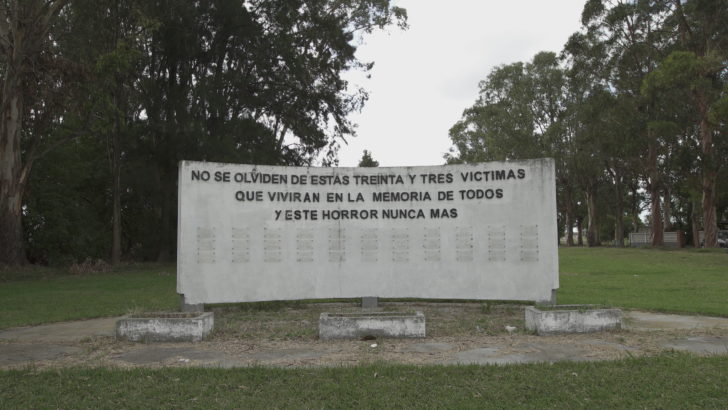Thirteen years ago, on the night of October 15, 2005, 33 people under state custody died in a fire at the Magdalena prison in the province of Buenos Aires. In the intervening years, the structural failings of the penitentiary system that caused the fire and deaths have only gotten worse. For this reason, CELS and CIAJ (Colectivo Investigación y Acción Jurídica) filed a petition before the Inter-American Commission on Human Rights (IACHR). The Argentine state is responsible at the international level for the ongoing detention conditions that led to the 33 deaths at the Magdalena facility, as well as others that have occurred since then in similar situations.
The Magdalena massacre, as it is sadly referred to, started that night when an argument broke out between two detainees. In a disproportionate response, 15 Buenos Aires Penitentiary Service agents entered the prison pavilion to suppress the conflict. They fired at least 21 rubber bullets at inmates entrenched at the back of the enclosed space. The brutality of the armed intervention led one inmate to start a fire in protest.
The magnitude of the fire and the smoke and toxic gases emanating from it were the result of the absolute lack of a functional firefighting network and other factors, such as overpopulation and associated overcrowding, an accumulation of clothing and non-regulation mattresses made of polyurethane – a highly flammable material that gives off lethal toxic smoke. Only two inmates survived thanks to rescue efforts by other inmates from the same unit.
During the trial over the massacre, which did not take place until 12 years later, it was proven that the prison agents involved in the operation left the scene once they could not take the heat and smoke anymore. The last to leave was shift leader Reimundo Héctor Fernández, who was in charge of leading the repression that led to the blaze. It was he who ordered the closure of the only exit once the fire had broken out. This order was executed by guard Rubén Montes de Oca, who was the last to guard the exits. This was how 35 inmates ended up trapped inside while the blaze grew. Once they realized they were fatally trapped, the prisoners began to yell for help, but neither Fernández nor Montes de Oca opened the cell gate.
In August 2017, Judges Carmen Palacios Arias, Isabel Martiarena and Ezequiel Medrano of Criminal Tribunal No. 5 in La Plata sentenced Daniel Oscar Tejeda, prison director of Unit 28 of the Magdalena complex, to five years in prison for the crime of aggravated reckless conflagration. They also sentenced shift chief Reimundo Fernández and Rubén Montes de Oca to 25 and 10 years in prison, respectively, for the crime of intentional homicide.
Although 13 penitentiary agents were acquitted, the ruling allowed the events to be reconstructed and drew attention to the consequences of the structural shortcomings and detention conditions affecting inmates in the provincial prisons. At the same time, investigations to determine the responsibility borne by the Buenos Aires Penitentiary Service’s top leadership and by officials from the provincial Ministry of Justice, among others, are still pending.
Deaths due to fires in overcrowded conditions occur on a regular basis in prison facilities in the province of Buenos Aires and throughout the country. On March 2, 2017, seven inmates died while trapped in a fire in a cell in the Pergamino Police Station No. 1, in the province of Buenos Aires. On June 6, 2018, a judge based in the city of La Plata ordered the closing of Unit 35 of the Magdalena prison for lack of a functioning firefighting network. The La Plata Appeals and Guarantees Chamber ordered that a firetruck be made available to the unit on a 24-hour basis until the failings were resolved.
Prison overpopulation is closely linked to the sustained increase in incarceration rates, the excessive use of pre-trial detention and measures restricting liberties. Half of those being held in Buenos Aires provincial prisons are in pre-trial detention. In the past decade, legislative reforms promoting the use of pre-trial detention during criminal proceedings as the rule rather than the exception have been implemented. This trend has intensified under the current administration of Governor María Eugenia Vidal.
All of this is happening in a scenario of historic infrastructure failings and lack of financing for prison services.

